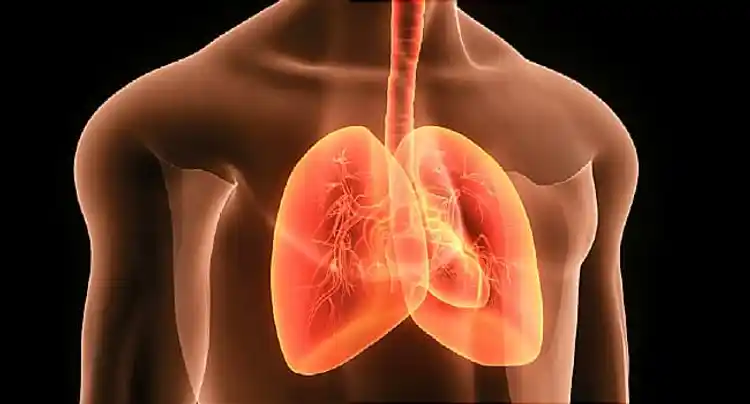Combat Common Side Effects of Immunotherapy

Hide Video Transcript
Video Transcript
[MUSIC PLAYING]
Lung toxicity is one of the more commonly encountered side effects and can be very serious. And so this can sometimes present with cough, usually, it's a dry cough in a patient that's not otherwise sick. Or perhaps, some subtle decrease in their energy or their stamina.
Similarly, when patients have GI involvement, it can often present with diarrhea, a little bit more frequent bowel movements, or maybe, a little bit looser than usual. And potentially, progress to being more severe. And so those are things that we'd like to know about.
Unfortunately, what we found is that for many patients, if they're going to experience a side effect of immunotherapy, we can't necessarily just lower the dose, like we used to be able to with other types of treatment. And so one of the most important aspects of this is to observe patients closely.
Anytime you have a patient with a potential side effect is to try to dive down into whether or not you think that side effect is related to the medication or some other cause. If I'm able to exclude infections or other causes, the next step is to stop the medication, at least temporarily, and see if the patient recovers.
But ultimately, if a patient is truly having significant side effects related to the immunotherapy, it often can be very difficult to restart them on that treatment.
Patients should report any new symptom to their treating physician, especially if it's not something that they've had previously. The worst thing we do is tell them that it's likely unrelated to their treatment and provide reassurance in that setting.
JONATHON COHEN
We have been very fortunate with the advent of immunotherapy, to eliminate or at least, decrease, some of the older side effects that we saw with traditional chemotherapy. But unfortunately, it has introduced a number of other toxicities that have to be monitored very closely for patients that are receiving immunotherapy. Lung toxicity is one of the more commonly encountered side effects and can be very serious. And so this can sometimes present with cough, usually, it's a dry cough in a patient that's not otherwise sick. Or perhaps, some subtle decrease in their energy or their stamina.
Similarly, when patients have GI involvement, it can often present with diarrhea, a little bit more frequent bowel movements, or maybe, a little bit looser than usual. And potentially, progress to being more severe. And so those are things that we'd like to know about.
Unfortunately, what we found is that for many patients, if they're going to experience a side effect of immunotherapy, we can't necessarily just lower the dose, like we used to be able to with other types of treatment. And so one of the most important aspects of this is to observe patients closely.
Anytime you have a patient with a potential side effect is to try to dive down into whether or not you think that side effect is related to the medication or some other cause. If I'm able to exclude infections or other causes, the next step is to stop the medication, at least temporarily, and see if the patient recovers.
But ultimately, if a patient is truly having significant side effects related to the immunotherapy, it often can be very difficult to restart them on that treatment.
Patients should report any new symptom to their treating physician, especially if it's not something that they've had previously. The worst thing we do is tell them that it's likely unrelated to their treatment and provide reassurance in that setting.
